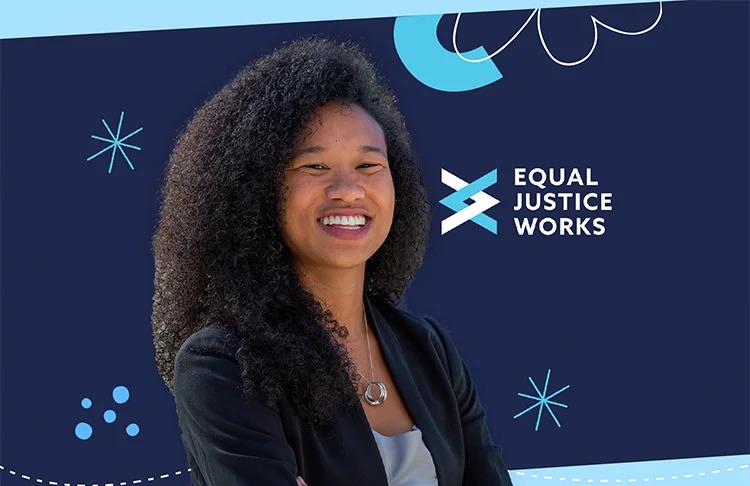Clorox Equal Justice Works Fellow Spotlight: Supporting Older Incarcerated People Through the Parole Process
Published 09-03-24
Submitted by The Clorox Company

More than four years ago we made a commitment — through The Clorox Company Foundation — to help fight racism and inequality. Some of our financial commitment goes toward supporting Equal Justice Works fellows like Darby Aono-Shek. Darby is working with UnCommon Law to help older incarcerated people, many of whom are Black and Latinx, challenge their illegal parole denials.
Tell me a little bit about the organization where you work and what it does.
I work at an organization called UnCommon Law. We’re based in Oakland, and we fight to ensure that people who are incarcerated in California have access to healing, justice and effective legal representation as they seek release through the parole hearing process. Our attorneys use trauma-informed legal counseling to unpack the underlying factors that contributed to a person’s crime and help them prepare a safe pathway home from prison.
In addition to representing people at parole hearings, UnCommon Law uses litigation to challenge illegal parole denials and address systemic issues within the parole system. We also partner with legislators, community members, impacted families, and loved ones to support legislation that advances the freedom and well-being of incarcerated people.
How did you become involved in this field?
I’ve always known that I wanted to work with people in prison, but I didn’t know anything about California’s parole process until my first year of law school, when I took a class taught by UnCommon Law founder and executive director Keith Wattley.
It didn’t take long for me to fall in love with UnCommon Law’s work. As part of Keith’s class, each student was paired with an incarcerated person who was navigating the parole process. I was in awe of the strength, courage and vulnerability that people showed going through the process. I thought, “How many attorneys get to learn from and feel inspired by their clients every day? I’d be the luckiest attorney in the world.”
I interned with UnCommon Law during my second year of law school, and I joined the team full-time as an Equal Justice Works legal fellow in 2022.
What are some examples of the challenges that UnCommon Law’s clients have faced?
In California, the parole board holds an extraordinary amount of power over people’s lives with limited oversight to ensure that it wields that power legally. As a result, in some situations the parole board denies parole for illegal reasons, keeping people in prison for years beyond when the law says they should have been released.
For example, the parole board denied parole to a 69-year-old woman suffering from Parkinson’s, early dementia and memory loss from an assault where she was knocked unconscious. Due to her memory issues, she often took pauses while answering the parole board’s questions. The parole board denied her parole, claiming that her difficulty answering questions was proof that she was “manipulative” and “lacking in sincerity.”
In California, parole denials must be challenged through habeas corpus petitions (a legal challenge to one’s imprisonment), but there is no right to habeas counsel for these cases. As a result, pro se litigants (people who represent themselves without an attorney) provide a primary check on the parole board, but systemic barriers and a lack of support make it virtually impossible for most people to do so.
How has your work addressed those challenges?
My fellowship is focused on helping older people who are incarcerated challenge their illegal parole denials. I’m taking a two-pronged approach to accomplishing this: 1) assuming a caseload through direct representation; and 2) focusing on the many people who have been denied parole but don’t have access to counsel.
I’m developing a comprehensive guide to filing habeas petitions without an attorney that will be available to people across California prisons. That way, more people can feel empowered to hold the parole board accountable, even if they can’t afford an attorney.

The Clorox Company
The Clorox Company
The Clorox Company has long been committed to purpose-driven growth. We believe our purpose is clear: to champion people to be well and thrive every single day.
Our allegiance to this shared aspiration guides and inspires our company to act with swiftness and confidence toward a more socially and environmentally sustainable future. With an ambition to mobilize all of our people and brands, we strive to act as a force for positive, lasting change in three key areas:
- Healthy lives: Improving people’s health and well-being.
- Clean world: Taking climate action and reducing plastic and other waste.
- Thriving communities: Investing in our people and communities to contribute to a more equitable world.
More from The Clorox Company

